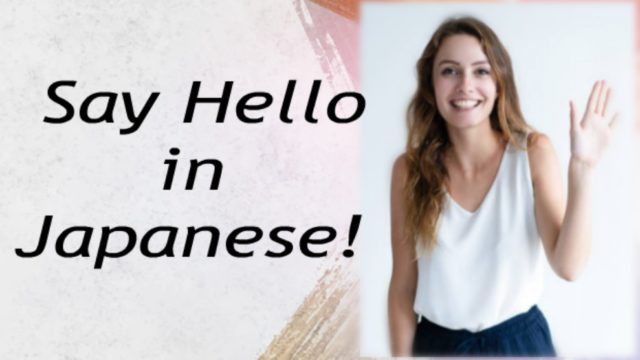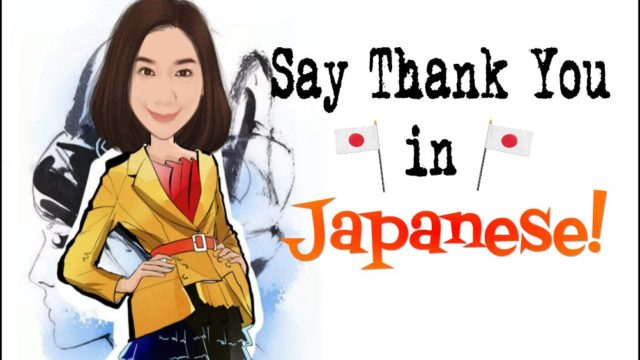Contents
Osewa ni narimasu.
| Hiragana | おせわになります |
|---|---|
| Kanji | お世話になります |
| Pronunciation | [oh-seh-wah-nee-nah-ree-mahs] |
This is a polite and formal way of saying thank you to your boss for taking care of you. This is not an expression that you can use on a daily conversation but it is always a good way to say it to your boss, clients, or even co-workers.
Osewa ni narimashita.
Osewa ni narimashita is the past form of the polite expression that I mentioned above. Use this expression when you want to say thank you for what the person has done for you.
Otsukaresama deshita
| Hiragana | おつかれさまです |
|---|---|
| Kanji | お疲れさまです |
| Pronunciation | [ohts-kah-reh-sah-mah-dehs] |
Otsukaresama desu is used when you want to say “You did a great job. Thank you for working hard”. Most of the time people would do this in Japan like at the train station, before parting ways with their colleagues.
Otsukaresama deshita
Otsukaresama deshita is an expression used when you want to thank someone for doing a great job until the work is already done. If you are a bit unsure of when to use this, it’s better to say: “otsukaresama desu”.
Ganbarimashou
| Hiragana | がんばりましょう |
|---|---|
| Kanji | 頑張りましょう |
| Pronunciation | [gahm-bah-ree-mah-shoo] |
A simple “ganbarimashou” can mean so much to your co-workers to start the day. This simply means let’s do our best for today or if you are going to start working on a project.
Osaki ni shitsurei shimasu.
| Hiragana | おさきにしつれいします |
|---|---|
| Kanji | お先に失礼します |
| Kanji | [oh-sah-kee-nee-shee-tsu-reh-ee-shee-mahs] |
This expression translates to “Excuse me for leaving work first”. You may use this if you are leaving from work and your colleagues are still working (though it seldom happens in Japan).
Itte mairi masu.
| Hiragana | いってまいります |
|---|---|
| Kanji | 行って参ります |
| Pronunciation | [ee-teh-mah-ee-ree-mahs] |
Leaving the office for an appointment like meeting some clients or you just have the need to go out and do some errands but will still come back, this phrase is the best way of saying “I’m leaving, see you later”.
Tadaima modori mashita.
| Hiragana | ただいまもどりました。 |
|---|---|
| Kanji | ただ今戻りました |
Tadaima is modori mashita is an expression used once you get back to the office after doing some errands or meeting a client.
This polite way of letting your colleagues know that you have already returned after going out of the office so they can update you if there are any errands that you need to attend to.
Sumimasen, ima ojikan daijoubu desu ka?
| Hiragana | すみません、いまおじかんだいじょうぶですか? |
|---|---|
| Kanji | すみません、今お時間大丈夫ですか。 |
If you need some help at work and everyone else seems busy doing some stuff, you can ask help by saying this phrase. Literally, it means “Excuse me, do you have a moment?”
It is always the proper etiquette to ask first if it’s okay to disturb that person a little before you start asking someone’s help while he/she is still busy doing something else.
Tayori ni shimasu.
| Hiragana | たよりにします |
|---|---|
| Kanji | 頼りにします |
| Pronunciation | [tah-yoh-ree-nee-shee-mahs] |
This formal expression is used when your colleague will be offering a hand for the project that you will be working on. It translates to “I’ll count on you”. In response to his/her kindness, you can say this expression.
Yoroshiku onegaishimasu.
| Hiragana | よろしくおねがいします |
|---|---|
| Kanji | 宜しくお願いします |
| Pronunciation | [yoh-roh-shee-koo-oh-neh-gahy-shee-mahs] |
Yoroshiku onegaishimasu is used when you want to say “Please take care of me or Please be kind to me at work”.
It is often used when making a request and expressing gratitude for that favor. This can also be said after you have finished introducing yourself to others/your colleagues/boss.
Ohayou Gozaimasu
| Hiragana | おはようございます |
|---|---|
| Pronunciation | [o-ha-yoo-goh-zay-mahs] |
This greeting means “Good morning” or it can also be a form of hello in the morning and it serves an important role when you are at work.
As a polite greeting, this can be used when greeting a colleague just to brighten up the mood. After all, who wouldn’t want to hear “good morning”, right?!




